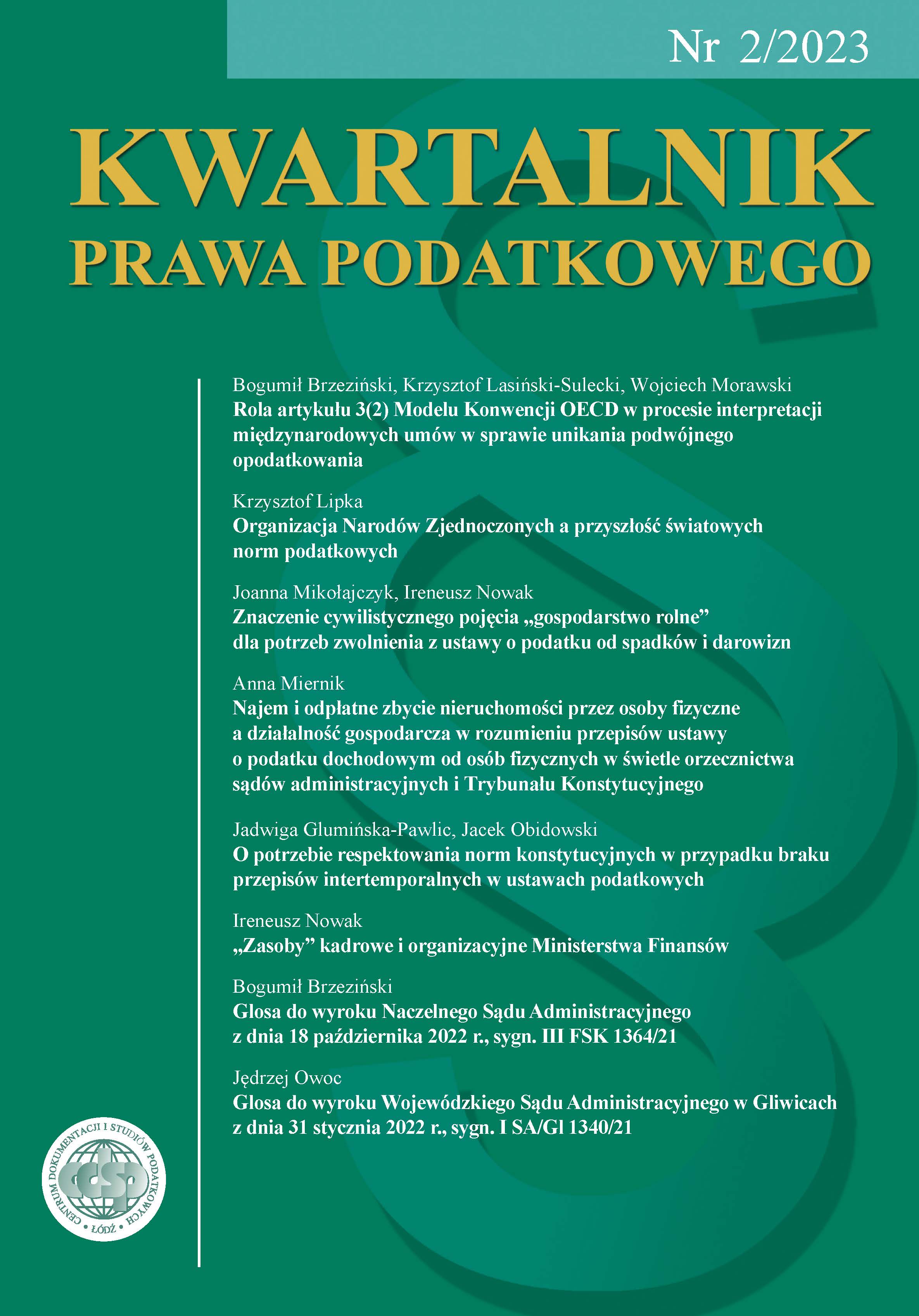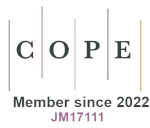Commentary to the judgment of the Provincial Administrative Court in Gliwice of January 31, 2022 (I SA/Gl 1340/21)
DOI:
https://doi.org/10.18778/1509-877X.2023.02.08Keywords:
permanent establishment, home office, remote workAbstract
The commentary raises the issue of establishing a permanent establishment for an enterprise in the case when it employs workers in another country who perform their duties remotely. The commented ruling of the Provincial Administrative Court in Gliwice is one of the first judgments in the Polish judicature referring to this issue. Its discussion is justified due to the growing popularity of cross-border work in the “home office” system, especially as a result of the COVID-19 pandemic. As part of the commentary, an analysis of the premises for the creation of a permanent establishment was conducted, taking into account the views of the doctrine and the international practice experiences. Special attention was paid to the premise of disposal of an establishment by an enterprise in the context of the possibility of creating a permanent establishment in the employee’s private space. According to the author, in this aspect, it is crucial to determine whether the company requires its employees to use a specific space in the course of performing their duties. In light of this analysis, the concept of the Provincial Administrative Court in Gliwice regarding the creation of a permanent establishment on the territory of Poland has been criticized.
Downloads
References
Bany K., Znaczenie Komentarza do Modelowej Konwencji OECD o unikaniu podwójnego opodatkowania, „Przegląd Podatkowy” 2000, nr 12.
Google Scholar
Deloitte, The Swedish Tax Agency makes a sharp turn in its view on home office driven permanent establishments, 2022, https://www2.deloitte.com/se/sv/pages/tax/articles/swedish-tax-agency-makes-sharp-turn-on-home-office-driven-permanent-establishments.html (dostęp: 17.11.2022).
Google Scholar
Gianni M., The OECD’s Flawed and Dated Approach to Computer Servers Creating Permanent Establishments, „Vanderbilt Journal of Entertainment and Technology Law” 2014, vol. 17(1).
Google Scholar
Kirch M.S., The Role of Physical Presence in the Taxation of Cross-Border Personal Services, „Boston College Law Review” 2010, vol. 51(4).
Google Scholar
Kukulski Z., Konwencja modelowa OECD i Konwencja Modelowa ONZ w polskiej praktyce traktatowej, Warszawa 2015.
Google Scholar
Lipniewicz R., Podatkowy zakład zagraniczny, Warszawa 2017.
Google Scholar
Litwińczuk H., Międzynarodowe prawo podatkowe, Warszawa 2020.
Google Scholar
Morawski W., Komentarz do art. 5 ust. 1, [w:] Model Konwencji OECD. Komentarz, red. B. Brzeziński, Warszawa 2010.
Google Scholar
Nitikman J., The Painter and the PE, „Canadian Tax Journal” 2009, no. 2.
Google Scholar
OECD, Model Tax Convention on Income and on Capital 2017 (Full Version), OECD Publishing, Paris 2019, http://dx.doi.org/10.1787/g2g972ee-en
Google Scholar
DOI: https://doi.org/10.1787/g2g972ee-en
Skaar A.A., Erosion of the Concept of Permanent Establishment: Electronic Commerce, „Intertax” 2000, no. 5, https://doi.org/10.54648/265805
Google Scholar
DOI: https://doi.org/10.54648/265805
Woźniak T., Miejsce i rola zakładu w międzynarodowym prawie podatkowym, „Przegląd Legislacyjny” 2017, nr 4.
Google Scholar
Woźniak T., Powstanie zakładu a unikanie opodatkowania w międzynarodowym prawie podatkowym, Warszawa 2022.
Google Scholar
DOI: https://doi.org/10.33226/0137-5490.2022.1.4
Downloads
Published
Versions
- 2023-06-22 (2)
- 2023-05-30 (1)
How to Cite
Issue
Section
License

This work is licensed under a Creative Commons Attribution-NonCommercial-NoDerivatives 4.0 International License.
PlumX metrics









